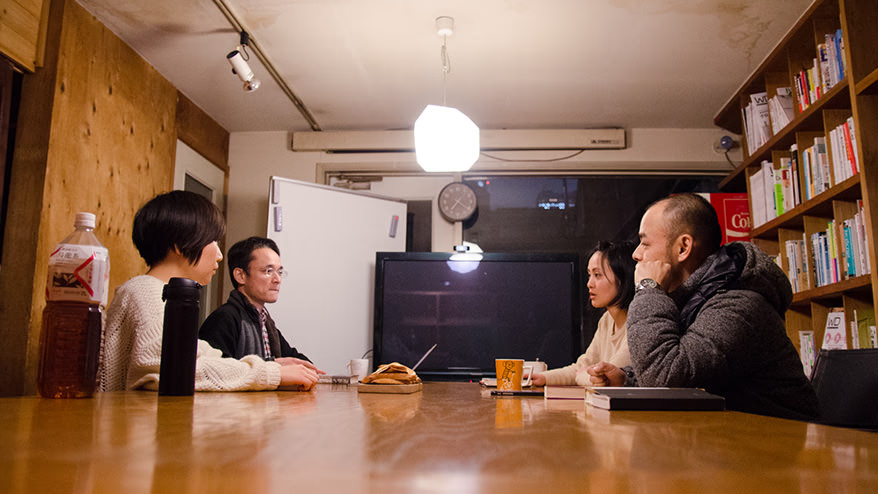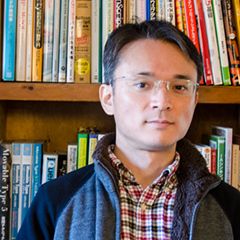月に1度ひらかれるモノサスの読書会。
「各自が本を持ってきて、はじめの40分間で読む(本の途中まででもOK)」
「読んだ感想を、1人5分間でプレゼンテーションする」
という流れで進みます。(会の主旨は第1回をご覧ください。)
今回の参加者は、読書会の発起人・菊永、新メンバー加倉井、前回から引き続き参加の中庭、そして私(村上)の計4名。
読書のお供にホットサンド(中庭 作)もふるまわれ、空腹対策も万全です。

最近"バウルー"にはまった中庭がつくったハムとチーズのホットサンド
それでは読書会、スタート。
発表タイム
40分間の読書タイムを終えたら、ひとり5分間でその本を紹介します。
- ロバート キヨサキ『金持ち父さんのキャッシュフロー・クワドラント:経済的自由があなたのものになる』(紹介者:菊永真介)
- 伊坂 幸太郎『終末のフール』(紹介者:加倉井宏美)
- 都築 響一『圏外編集者』(紹介者:中庭佳子)
- シーナ・アイエンガー『選択の科学』(紹介者:村上伊左夫)
ロバート キヨサキ『金持ち父さんのキャッシュフロー・クワドラント:経済的自由があなたのものになる』(紹介者:菊永真介)
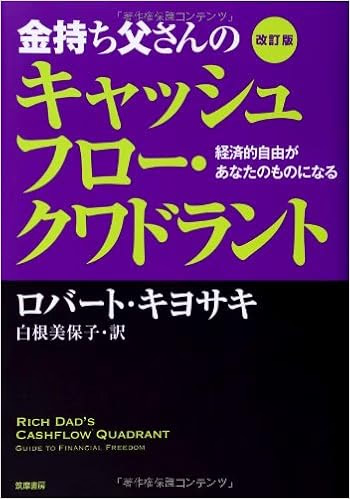
ロバート キヨサキ (著), 白根 美保子 (翻訳)『改訂版 金持ち父さんのキャッシュフロー・クワドラント:経済的自由があなたのものになる』 筑摩書房 改訂版2013 ( Amazon )
菊永 この本は、「金持ち父さん貧乏父さん」という有名な本の続編です。書評のメルマガで紹介されていて読んでみましたが、二十歳の時に読んでいたら人生変わってたのに!と思うほど衝撃的でした。
著者はハワイの人なんですが、お父さんが二人いたと。
学校の先生で賢く努力家だけど貧乏な「本当のお父さん」と、いろんなビジネスをやっていてお金持ちで、よく面倒を見てくれた「友達のお父さん」。この二人を対比しながら、お金持ちの人は何が違うのか、貧乏な人はなぜ貧乏のままなのか、ということについて語っています。
お金のことだけ考えてる人って胡散臭いし、この本もあやしいと思ったんですが、そんな先入観で読まないままだったら、人生棒に振るところでした。「お金のことは学校では教えてくれない」と書いてありますが、まさにそのとおりだな、と思いました。
どのようにお金を得ているかで、人々を4つのタイプに分けているんですが、お金持ちになりたいなら、システムをつくるビジネスオーナーになりなさいと、この本では言っています。
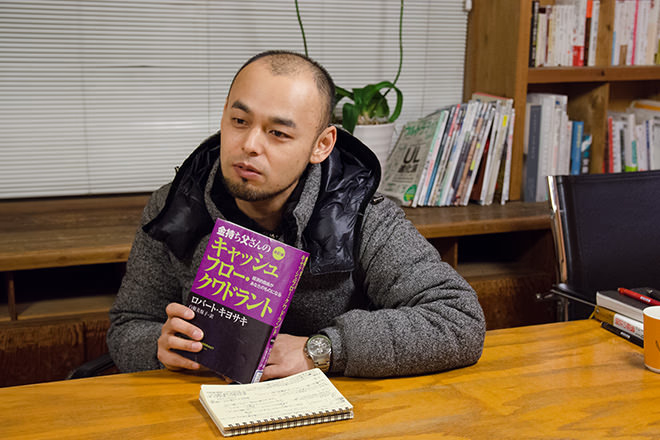
この本を読んで、もっとお金について勉強しなければと菊永
中庭 「システムをつくる」ってどういうことですか?
菊永 例えば、あるところに水を運びたいときに、汗水流して少しずつバケツで運ぶのか、それともパイプラインを建設するのか。ここで言う「システムづくり」とは「パイプラインを建設する」ことで、後者を選ぶのがビジネスオーナーなんですね。
加倉井 菊永さんはビジネスオーナーになるために、なにか考えてるんですか?
菊永 実は株をはじめようとしてます(笑)。好きな会社や将来性のある会社に投資しようと。貯金と違って自由に引き出せないけど、短期間の上がり下がりで利益を考えてる人は儲からない。
中庭 うちの大家さんも同じことを言っていました(笑)
菊永 ファイナンシャル・リテラシーは大切ですね。お金のことについて知らない人が多すぎると。自分もこの本を読んで、世の中の見方がすごく変わり、もっとお金について勉強しなければと思いました。みなさんもお金のことを考えてみてはどうでしょうか。
伊坂 幸太郎『終末のフール』(紹介者:加倉井宏美)
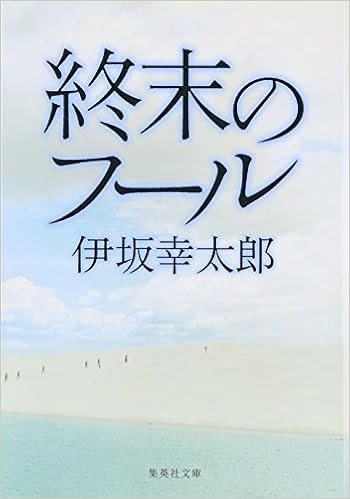
伊坂 幸太郎 (著)『終末のフール』 集英社 2009 ( Amazon )
この本は8つの短編に分かれていて、「地球に小惑星が落ちてきて8年後に人類が滅亡する」というニュースから5年後、人類滅亡まであと3年という状況の中で、8人の主人公のそれぞれの物語がはじまります。
なかでも私が一番好きなのが『冬眠のガール』です。
5年前、世界が終わることがわかって街が荒れるんです。人を殴ってみたり殺してみたり、あと8年しかないからと働かない人、死んでしまう人もたくさん出るなか、主人公の両親も自殺を図ります。残された彼女は父親の頭の中を知るために、彼の何千という蔵書を読みはじめ、5年間かけて読み終えたところから、このお話は始まります。
本を読み終えた日、主人公は偶然出会った同級生に「恋人がいないなんて可哀想だね」と言われ、「恋人をつくる」という目標を立てます。そして
「新しいことをはじめるには、三人の人に意見を聞きなさい」と本に書かれていたことを思い出して、それを実行するんです。
1人目は「尊敬できる人」。
最初はある同級生に話を聞くつもりでしたが、暴動で亡くなっていたので、彼のお母さんに話を聞きます。
2人目は「自分と考え方が全く違う人」。
昔、家庭教師をしてくれた大学生で、全く訳がわからないと感じる人ですが、話を聞くうちになぜかスッキリしていきます。
最後の3人目は「初めて会った人」。
2人目の家庭教師に会った帰りに見つけた、民家の庭先に倒れていた同い年くらいの男の子です。彼女がワクワクしながら助けに行こうとするところで、このお話は終わっています。
どうやって3年後の滅亡する世界を迎えるのか、主人公たちが少し期待を持ちながら生きているので、全部が絶望的ではないんです。そういう小説です。
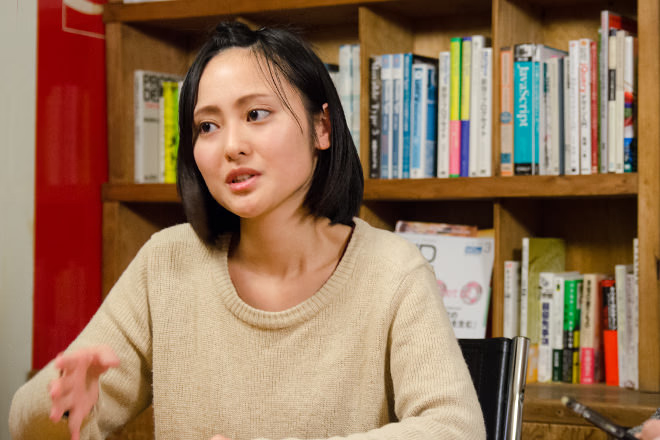
あらすじを懸命に説明する初参加の加倉井
中庭 伊坂さんの『フィッシュ・ストーリー』も世界が終わる話ですよね。
加倉井 そうなんです。彼は過去の作品を絡めてくることが多いので、もしかしたらこれも『フィッシュ・ストーリー』につながるんじゃないかなって思いながら読んでます。
中庭 8つの物語は、結局つながりそうですか?
加倉井 今のところつながってませんが、こちらも最終的につながるのかどうか、ワクワクしながら読んでます。
伊坂さんの作品は、わりと元気になるのが多くて、好きなんです。いくつかの伏線が最後に全部つながる感じとか、「あースッキリしたー!」って、結末が気持ちいいんです。
都築 響一『圏外編集者』(紹介者:中庭佳子)
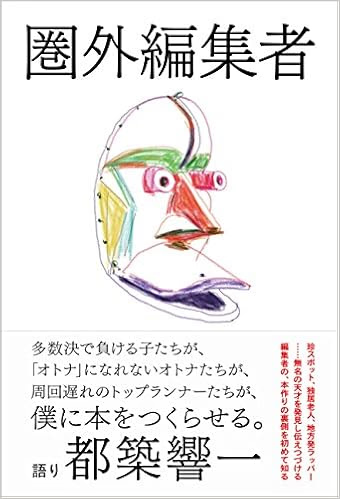
都築 響一 (著)『圏外編集者』朝日出版社 2015( Amazon )
中庭 みなさん都築響一さんてご存じですか?(皆、クビを振る)
都築さんがひとりで、撮影から編集、デザインまで手がけた『TOKYO STYLE』という写真集があるんです。東京の「うさぎ小屋」といわれるような安くて狭い部屋で自分なりのスタイルで暮らす若者100人の部屋を撮った写真集なんですが、それをはじめ、彼が作った本のラインナップをみると、とても独自な視点を持った編集者であることが分かります。そんな彼が、どうやって取材したり、本をつくってきたのか、語っているのがこの本です。
今ものさすサイトで編集に携わってるので、都築さんの編集スタイルは興味深いなと。でも書名に「圏外」ってついてるし、どれだけアウトローなんだ?!と思いながら本を開くと、いきなり「編集には術がない」と書かれていました(笑)。
「編集にノウハウもコツも存在しない」「編集会議はムダだ」「つまらない雑誌を生むのは編集会議のせいだ」などなど、あらゆる編集者を敵に回すような大胆な発言だらけで、さすが書名に「圏外」がついてるだけのことはあるなと(笑)。
新人時代に、初期の『POPEYE』や『BRUTUS』の編集に携わっていて、海外取材など、やりたい企画を自由にやらせてもらったそうですが、失敗したら自分の責任なので、全力でおもしろい記事を書かなければならなかったとのこと。
そんな彼は「読者を見るな、自分を見ろ」と言います。足を使ってネタを探し、自分の目でジャッジする、おもしろいもつまらないも記事をつくった編集者が責任を持つ、そんなことを新人時代に学んだとのことでした。(ここで5分終了のアナウンス)あ、『TOKYO STYLE』の制作秘話が話せなかった・・・
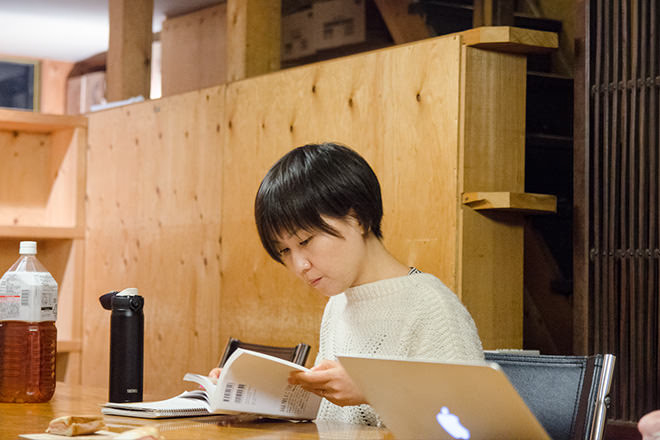
都築さんの大胆な発言に目が離せない中庭
菊永 すごくおもしろそうだけど、かなりアウトローですね。
中庭 すんなり計画を立てられるものは新しくない、誰も紹介したことがない記事じゃないと価値がない、自分の企画が検索でたくさんヒットしたら負け、そんな想いを貫いて、フリーランスでおもしろい本を作り続けることを選んだ人なので、周りからするとアウトローに見えますよね。そんな都築さんの「フリーの自由と不自由」の話にも重みがありました。
加倉井 私その帯がすごい気になってます(笑)
多数決で負ける子たちが、
「オトナ」になれないオトナたちが、
周回遅れのトップランナーたちが
おれに本を作らせる
中庭 まさに!多数決で決まった企画でなく、自分の面白いと思ったものを追求してきた、都築さんならではの言葉ですね。
シーナ・アイエンガー『選択の科学』(紹介者:村上伊左夫)
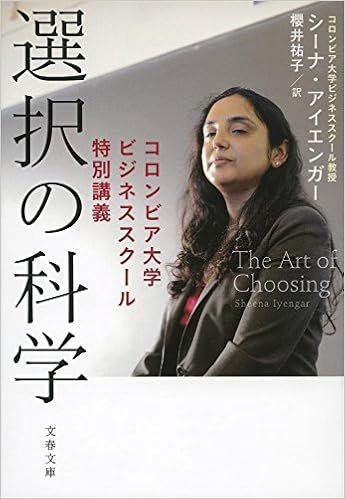
シーナ・アイエンガー (著), 櫻井 祐子 (翻訳)『選択の科学』 文藝春秋 2010 ( Amazon )
村上 「どの歯磨き粉を買うか」といった小さなことから、「どんな仕事に就くか」という大きなことまで、私たちは日々「選択」しながら生きています。
この本では「選択」にどんなプロセスがあるのか、そして「選択」することの意味や影響力について、著者の体験や実験を交えながら紹介しています。
今は第3章を読んでいますが、「自分は平均以上だ」と皆が思ってしまうことについて、ある実験をとおして述べています。何人かの被験者に、ある画像を見て「点」の数をかぞえてもらうんですが、あらかじめ彼らには「大多数の人は実際の数より多く数えてしまう」という情報を伝えておきます。その後、ランダムに2つのグループに分けて、一方には、あなた達は実際の数よりも「少く数えた」、もう一方には「多く数えた」と伝えます。
すると、「多く数えた」と伝えられたグループの人たちは、自分が大多数の人と同じであると自尊心を傷つけれられたそうなんです。このことから、人は自分のことを個性的で、比類の無い人間だと信じているんだと言っています。
これは自分自身についても、とても当てはまります。
例えば、私はiPhoneを使っていますが、ちゃんと理由があって選択したと思っているんです。ただ、他の人も同様にちゃんとした理由をもって選んでいるわけで、結果として「大勢と同じ選択をしただけ」ということなんですね。他の人から見たら、私も大衆の中のひとりなんです。
自分も含めて、人間はそんなふうに思い込みがちなんだということを頭の片隅において、まずは日常の中で自分の心の動きを見ていきたいと思います。
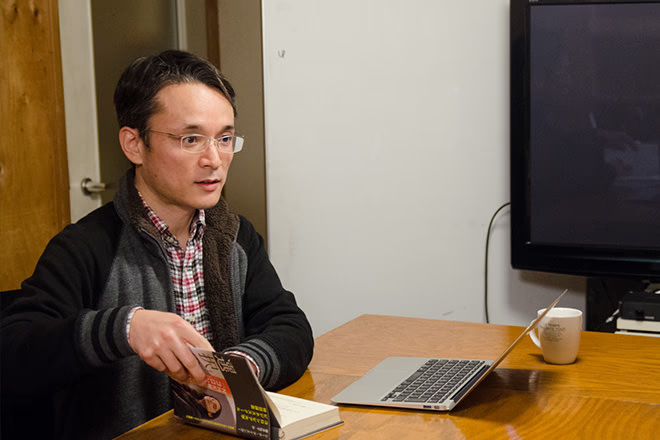
"私も大衆のひとりなんです。"と語る図書委員長・菊永
菊永 僕も自分のことをどこかで特別だと思っているかも。だけど、それが悪いといっているわけじゃないんですよね?
村上 まだ途中なのではっきりとは言えませんが、他者を認めることにも繋がるのかもしれません。この本は「選択」をテーマにしていますが、それが無条件に素晴らしい、とは言ってないんです。様々な選択をできることが、必ずしも幸福であるとは限らないと。
最終的にどのように結論づけていくのか、楽しみに読み進めていきたいです。
読書会を終えて
今回は初参加のメンバーが小説を紹介してくれました。
これまでは、ビジネス本など硬めの内容の本が多い傾向にありましたが、新しいメンバーが参加することで、読書会の雰囲気が少しずつ変わっていくのも良いなと思いました。
次回は「小説・エッセイ」がテーマで読書会を開きたいと思います。
それでは、また来月。
